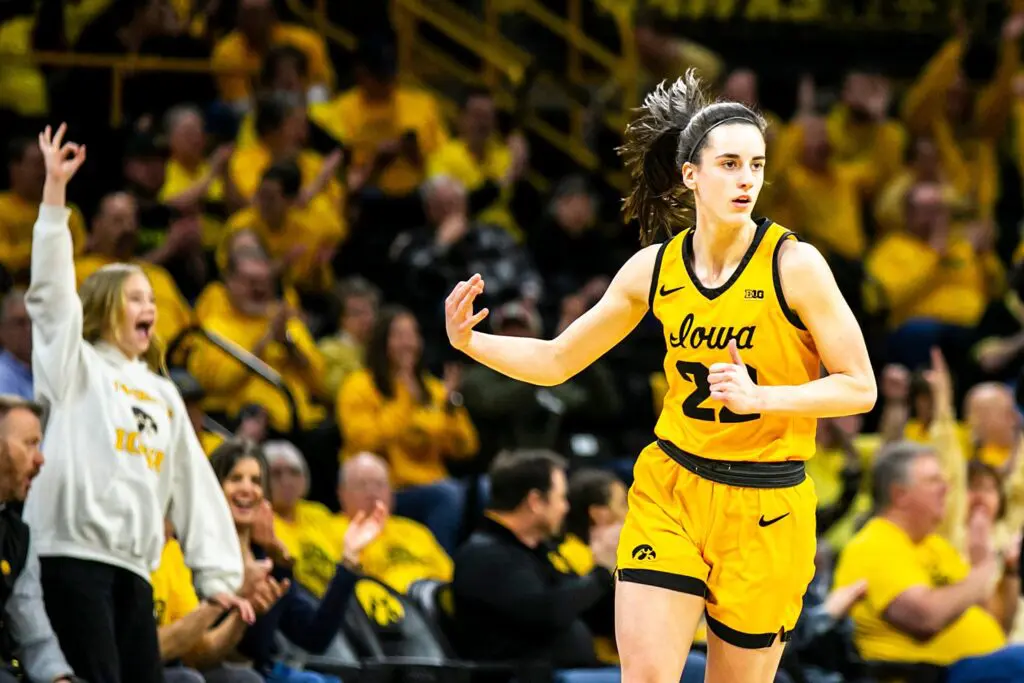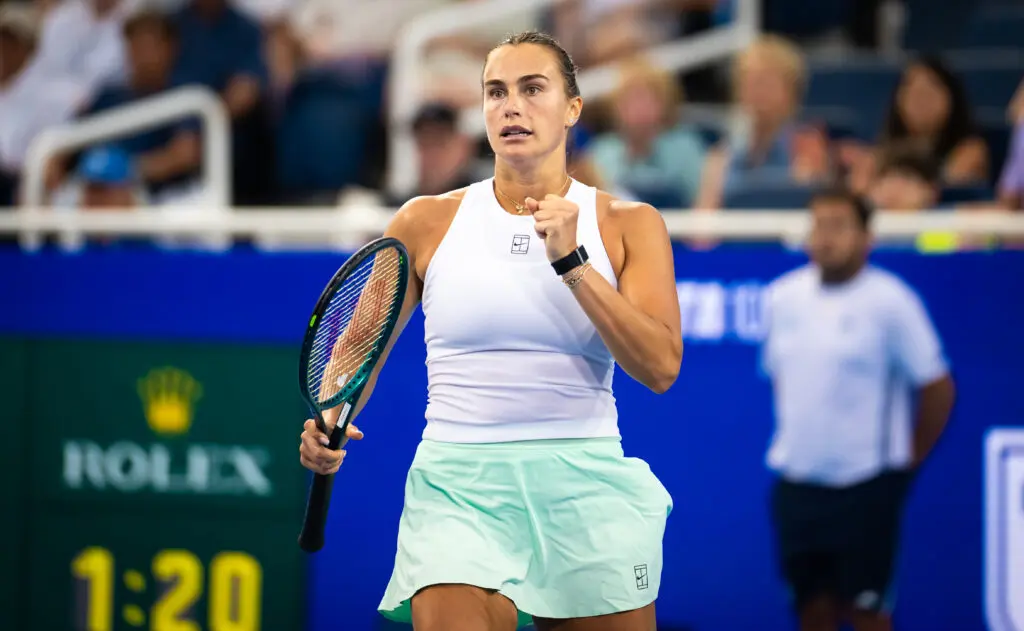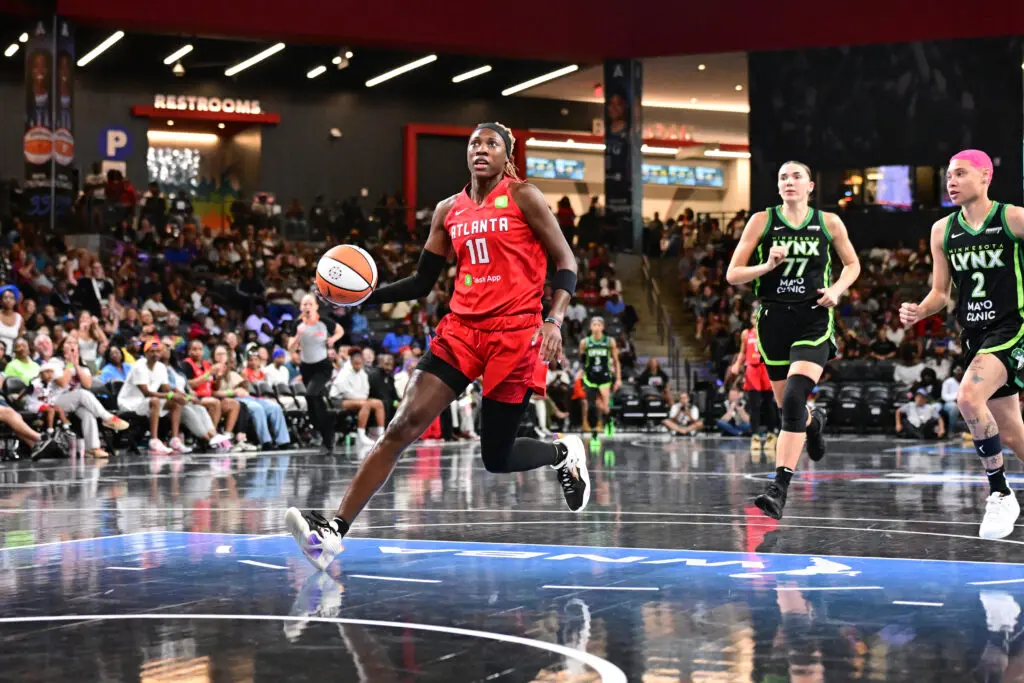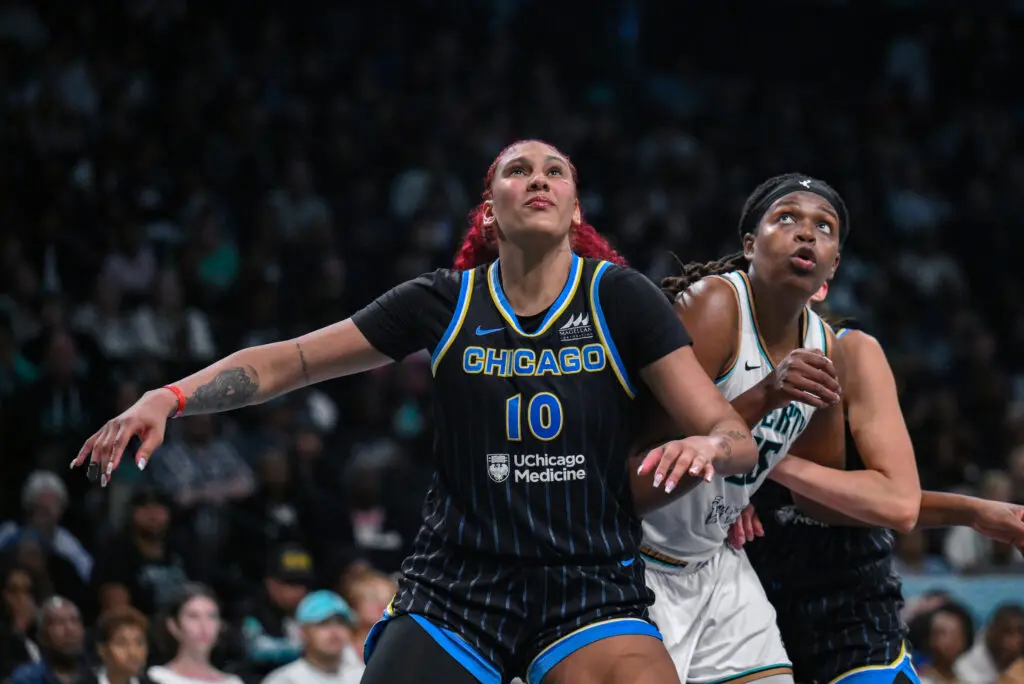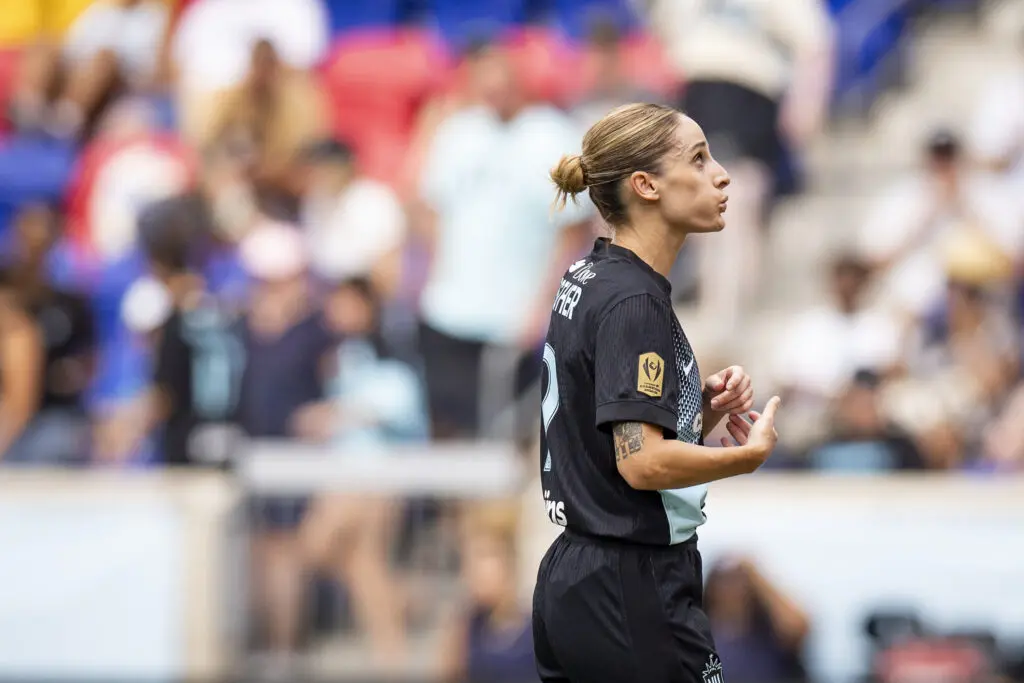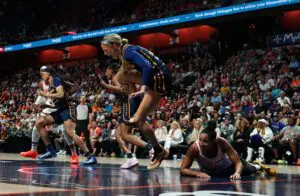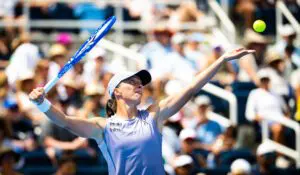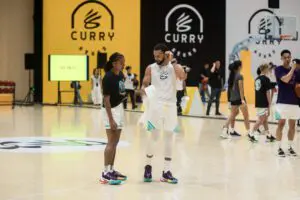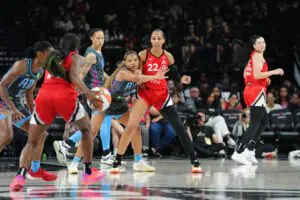When Caitlin Clark launched a game-winning 3-pointer Sunday to defeat No. 2 Indiana, the Iowa star added another line to her Player of the Year résumé. With 34 points, 9 rebounds, 9 assists, a buzzer-beater and a celebration to match, she put an exclamation point on an incredible regular-season that included nine 30-plus point games and three triple-doubles.
Every time you look, the junior guard is doing something amazing. From her long-range shots to playmaking ability in transition, Clark is must-see TV. And there is no denying her place as one of the best players in the country. But does she have the national Player of the Year race locked up?
Her case is certainly compelling.
One look at Clark’s stats and you can see just how important she is to the No. 7 Hawkeyes. The junior guard leads her team in all major statistical categories, even blocks. She averages 27.2 points per game (second in the country), 8.2 assists (first in the country), 7.4 rebounds, 1.6 steals and 0.6 blocks. She’s also led her team to a 23-6 record (second in the Big Ten), and she won the Big Ten Player of the Year award for the second consecutive season.
Clark is a clear contender for POY, and the reasons why are obvious. But there are two main criticisms floating around as to why she shouldn’t take the award.
𝐁𝐚𝐜𝐤-𝐭𝐨-𝐁𝐚𝐜𝐤 ✨@CaitlinClark22 is the 𝐁𝟏𝐆 𝐏𝐥𝐚𝐲𝐞𝐫 𝐨𝐟 𝐭𝐡𝐞 𝐘𝐞𝐚𝐫!#Hawkeyes pic.twitter.com/tagPuibaUK
— Iowa Women's Basketball (@IowaWBB) February 28, 2023
The first is that her stats are inflated because of the team around her. In relation to South Carolina’s Aliyah Boston, who is surrounded by scoring weapons, or even Indiana’s Mackenzie Holmes, that’s true. The other Hawkeyes aren’t capable of scoring the way the Gamecocks or Hoosiers rosters are. So yes, Clark likely wouldn’t average 27.2 points per game if she played for South Carolina or another similar team.
But I wouldn’t put too much stock in that argument. For one, it reduces Clark to a scorer and nothing else, which if you look at her stats is obviously not the case. Yes, her stats are inflated, but they also reflect just how much she impacts the game. Clark is a playmaker in every sense of the word.
Being second in the country in scoring and first in assists is no small feat. It means Clark is responsible for the majority of her team’s scoring, whether she is putting the ball in herself or finding an open teammate. That does not even take into account the possessions she creates by grabbing rebounds and pushing the ball up the court.
It’s easy to watch Clark and marvel at her logo 3-pointers or her celebratory antics. But the true beauty in the junior’s game is the way she reads the floor and the situation. She shoots from long, long range when necessary, attacks when necessary, and finds teammates in scoring position when necessary. Because she draws such intense defensive attention thanks to her scoring ability, Clark is able to create off the bounce for her teammates, and in turn, nearly everything that happens on offense for Iowa is because of the guard.
The second criticism of her game is that Clark doesn’t play defense the way other POY candidates do. But a lot of that is simply because she’s not called upon to defend at an elite level. Clark plays big minutes (34 per game) and is expected to drive the Iowa attack. The Hawkeyes would rather she do that than waste energy drawing her opponent’s toughest matchup or getting into foul trouble. She’s not a defensive juggernaut, but she doesn’t have to be.
So in the same way other players shouldn’t be penalized for having more scoring options around them, Clark shouldn’t be penalized for being on a team that doesn’t want her guarding her opponent’s No. 1 offensive weapon.
Whether or not she will take home the national POY awards remains to be seen, and it will likely come down to her and reigning POY winner Boston. Both have strong cases, and Clark’s impressive game against Indiana is just one more point to take into consideration.
